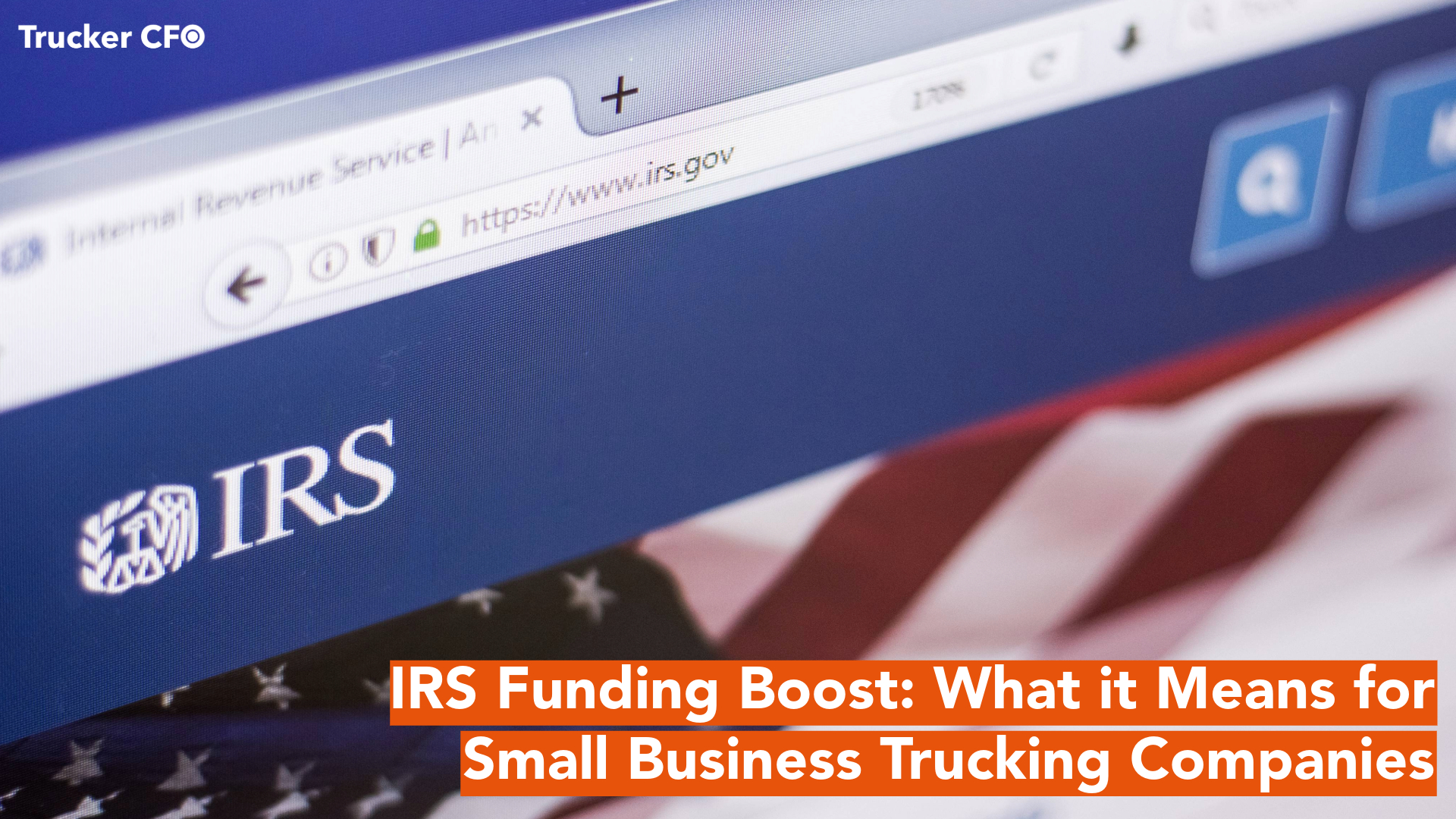
As the backbone of the American economy, small trucking businesses face unique challenges, especially in light of recent legislative changes. The IRS Funding Boost, part of the broader IRS Funding Act, aims to enhance tax law enforcement, raising important considerations for small business owners in the trucking industry. While politicians and IRS officials assure us that only the wealthy will see increased audit rates, it’s my opinion that small business owners, including those in the trucking sector, may also face heightened scrutiny.
Understanding the IRS Funding Boost
The IRS Funding Act, passed in response to rising inflation and concerns about tax compliance, provides additional resources to the IRS for hiring new agents and upgrading technology. This infusion of funds is intended to bolster the IRS’s ability to enforce tax laws effectively and ensure everyone pays their fair share. However, despite assurances from officials, there’s reason to believe that small business trucking companies could find themselves in the crosshairs of increased audit activity.
Potential Impact on Small Trucking Businesses
One key factor driving this concern is the practical approach new IRS agents might take as they begin their enforcement duties. When new agents join the IRS, they need to gain experience and demonstrate results. In many cases, this could mean targeting what they perceive as easier, lower-hanging fruit—small businesses that may have less sophisticated tax strategies or resources to defend against audits.
Small business trucking companies, despite their vital role in the economy, often operate with relatively thin margins and complex tax situations. They may rely on independent contractors, navigate intricate deduction rules, and face unique compliance challenges specific to the transportation industry. These factors could make them attractive targets for IRS audits, especially for new agents eager to make an impact and meet enforcement quotas.
Furthermore, the IRS’s increasing reliance on data analytics and sophisticated auditing techniques could further raise the stakes for small business trucking companies. Automated systems can flag potential discrepancies in tax filings, triggering audits even for minor errors or oversights. As the IRS ramps up its enforcement efforts with new technology and personnel, small businesses must be vigilant about maintaining accurate records and staying compliant with tax laws.
Proactive Measures for Compliance
Small business trucking companies must take proactive steps to mitigate the risk of audits and ensure compliance with tax regulations. This includes investing in robust accounting systems, seeking professional tax advice, and keeping meticulous records of income and expenses. By staying informed and proactive, businesses can confidently navigate the changing landscape of IRS enforcement.
Stay Prepared and Informed
While the primary aim of the IRS funding boost is to ensure tax fairness, small trucking businesses must remain vigilant and prepared for potential scrutiny. By understanding the changes and taking proactive steps, small business owners can safeguard their interests and continue to thrive in a dynamic economic environment.
